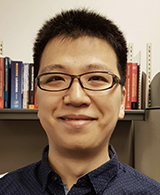COMP Affiliated Labs
Mark Daley

Contact information
Tel: (519) 661-2111 x87897
Email: mdaley2@uwo.ca
Website: Daley Lab
Departments
Computer Science, Biology
Research Areas
- Natural Computing
- Theoretical Computer Science
- Mathematical Modelling of Biological Systems
- Computational Neuroscience & Neuroinformatics
Our research group is devoted to the development of computational, and mathematical, methods and techniques for modelling, probing, and understanding, our world. Our current research activities have been focussed on the mathematical and computational modelling of genetic processes as well as analyzing and modelling macroscopic functional connectivity in the brain.
Jörn Diedrichsen
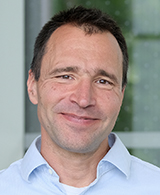
Contact information
Tel: (519) 661-2111 x86994
Email:jdiedric@uwo.ca
Website: Diedrichsen Lab
Departments
Computer Science, Statistics, Psychology
Research Areas
- Computational Neuroscience
- Motor Control and Learning
- Neuroimaging
The Diedrichsen Lab studies motor control, skill learning, and the function of the human cerebellum. We develop computational approaches for the analysis of high-dimensional functional imaging, behavioral, and neural data.
Ali Khan
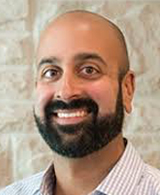
Contact information
Tel: (519) 931-5777 x24280
Email: alik@robarts.ca
Website: Khan Lab
Departments
Medical Biophysics, Medical Imaging
Research Areas
- Image analysis to study structure of the brain
- Clinical Applications in Epilepsy
- Ultra-High Field Neuro-Imaging Pipelines
The Khan Lab develops and applies sophisticated image processing and analysis techniques to extract, quantify, and distill information from medical images, ultimately leading to more accurate diagnoses and more precise surgical interventions.
Yalda Mohsenzadeh
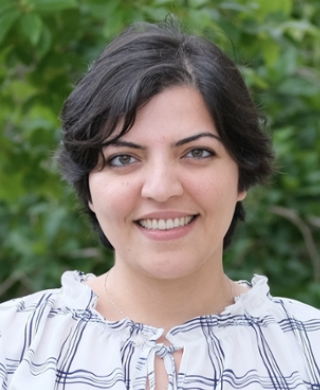
Contact information
Tel: (519) 661-2111 x86894
Email: ymohsenz@uwo.ca
Website: Mohsenzadeh Lab
Departments
Computer Science
Research Areas
- Cognitive Computational Neuroscience
- Neural Dynamics of Human Perception and Memory
- Computer Vision
- Machine Learning
Our lab works at the intersection of cognitive neuroscience and computer science closing the loop between theory and experiment. Computational principles guide our experiments into the underlying brain function, and through neuroscientific insights, we aim to develop “cognitive machines”—biologically inspired computational models that can recognize and interact with the world like humans. We use deep convolutional neural networks, neuroimaging experiments (fMRI and MEG/EEG) and advanced analytical tools for mapping the spatiotemporal dynamics of neural processing during perception and memory.
Lyle Muller
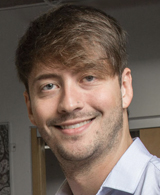
Contact information
Tel: (519) 661-2111 x85765
Email: lmuller2@uwo.ca
Website: Muller Lab
Department
Applied Mathematics
Research Areas
- Computational Neuroscience
- Vision
- Memory
- Networks
Our group develops computational tools and mathematical models to solve problems in sensory processing and memory. New image analysis algorithms inspired from computer vision and computational physics allow us to capture the fine-scale dynamics of cortical populations in next-generation, large-scale neural recordings. We then use computational models and analytical approaches from random graph theory to understand the network-level mechanisms underlying our results. We collaborate with a range of colleagues in systems, cognitive, and clinical neuroscience in this research.
Marieke Mur
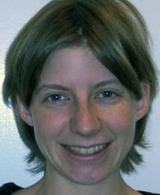
Contact information
Email: mmur@uwo.ca
Website: Visual Cognition Lab
Departments
Computer Science, Psychology
Research Areas
- Vision
- Computational Neuroimaging
- Psychophysics
Despite the ease with which we make sense of the outside visual world, the computational task performed by the brain is far from trivial. How do we recognise objects? What neural and computational mechanisms underlie this ability? How are incoming visual signals integrated with behavioural goals? Our lab addresses these questions using psychophysics, functional magnetic resonance imaging (fMRI) and computational modeling.
Andrea Soddu
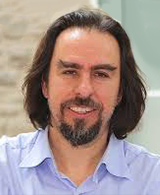
Contact information
Tel: (519) 661-2111 x82669
Email: asoddu@uwo.ca
Department
Physics and Astronomy
Research Areas
- Study of resting state fMRI connectivity in altered states of consciousness
- Modelling of the structure-function relationship in the human brain
Boyu Wang
Research Areas
- Machine Learning
- Brain Signal Analysis
- Knowledge Transfer in Learning Algorithms
Boyu Wang is an Assistant Professor at Western University in August 2019. Before Western, he spent three years as a postdoctoral fellow at the University of Pennsylvania and Princeton University. Before that, he obtained his PhD in Computer Science at McGill University in 2016. Broadly, Boyu’s research interests lie at the intersection of machine learning, neuroscience, and biomedical engineering, with an emphasis on knowledge transfer in learning algorithms and brain signal analysis.


